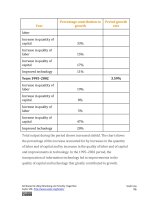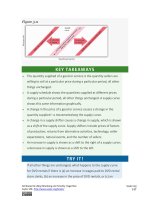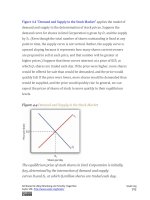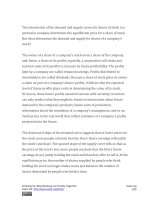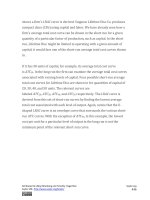Authors libby rittenberg 875
Bạn đang xem bản rút gọn của tài liệu. Xem và tải ngay bản đầy đủ của tài liệu tại đây (513.41 KB, 1 trang )
often disagree about which, if any, consumer protection regulations are
warranted, they do tend to agree that market incentives ought to be used
when appropriate and that the most cost-effective policies should be
pursued.
KEY TAKEAWAYS
Federal, state, and local governments regulate the activities of firms
and consumers.
The public interest theory of regulation asserts that regulatory efforts
act to move markets closer to their efficient solutions.
The public choice theory of regulation argues that regulatory efforts
serve private interests, not the public interest.
Consumer protection efforts may sometimes be useful, but they tend
to produce behavioral responses that often negate the effort at
protection.
Deregulation efforts through the 1990s generally produced large gains
in consumer welfare, though demand for more regulation is rising in
certain areas, especially finance.
TRY IT!
The deregulation of the airline industry has generally led to lower
fares and increased quantities produced. Use the model of demand
and supply to show this change. What has happened to consumer
surplus in the market? (Hint: You may want to refer back to the earlier
discussion of consumer surplus.)
Attributed to Libby Rittenberg and Timothy Tregarthen
Saylor URL: />
Saylor.org
875
